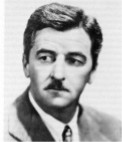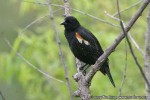Life at the Lake
a diary of living at a small lowland lakeWHAT IT'S LIKE

Early moonrise over Lake Ketchum
|
Archive Search |
| Links |
|
and s-integrator |

The bass from under my dock
One of the joys of living on a lowland lake is meeting the denizens, that is, the creatures that inhabit the place. Especially I refer to the large-mouth bass.
They remain hidden, unless you go out expressly looking for them with a rod and reel. A very few go up to six or seven pounds. Most are much smaller.
This year's class is from three to four inches long. They're nothing to fish for, though by now they will follow lures or flies and strike at them, hungrily, competitively, for there are thousands of the tiny fish.
Growing up as a boy fisher, I avidly bought copies of Field and Stream; I read tales of behemoth bass from Florida. Ten or twelve-pounders were not uncommon. The grinning guy holding one up was a testimony to skill and perseverance.
I too wanted to catch a behemoth. Trout, sure, often, and crappie and bluegills, often in the same lake, and there were bass reported there, too, but I never got a one, still-fishing with worms or salmon eggs, or else trolling my favorite lure, the Helin Flatfish. In fact, I lived to be of retirement age and had never caught a large-mouth bass.
Then I came to Lake Ketchum. It was mid-summer, just as it is now, but all I could catch on a nymph fly fishing off my dock were strange tiny creatures. They were bass, but not of the size I had dreamed of. And I could catch the little guys on nearly every cast in the warm, quiet evening.
The genuine bass fishers like I'd read about in the magazines of my youth had given up, for they fished mainly for the pre-spawn bass. This was not awfully sporting, I soon learned, for bass are protective of their nests in shallow water and will strike at all intruders. What is more, what is worse, a fisher can see the bass on their nests and fish expressly for them.
But that next year (not a good one for bass) I went out after the pre-spawn bass, and actually caught a couple on my newly purchased bass lures. How proud and happy I was. And there was one special year that followed when I caught a number of bass around spawning time, but not targeting their nests. One was six pounds. I took its picture. Another came right from underneath my own dock, when I was coming in to quit.
This year, when the Mariners' opponents were at bat in twilit summer evenings, I, bored to the teeth, ventured out on my dock and cast a lure called a Rooster Tail for whatever would strike. Early in the summer, it was trout—11-15 inchers. But the trout soon went dour. Then it was feisty yellow perch—which really are orange and green. They went a thick six to nine inches, but hit hard and wriggled pretty good.
My point is, fishing for whatever would hit my lure, in recent evenings, I've caught three small bass. They were welcome. The biggest went less than two pounds, I reckon. Another about one. And the on last night, less than a pound.
But they were heartily welcomed. They fought hard, but shortly, and were carefully examined before they were picked up by their huge lower lip and let go.
Each time I marveled at this still-foreign-seeming creature, another denizen of the lake. Maybe even a neighbor!
- - Comments ()
...

"O Mexico!"
Some friends and readers disagreed with my immodest proposal to invade Canada. (O Canada!) They thought Canadians were too much like ourselves and it would be like kissing your sister. And where would be the mystery and intrigue, the funny clothes, dark skin, and unintelligible language?
How about Mexico, one asked?
No, no, no. True, Mexico probably doesn't love us except for our tourist dollars, and repays us with "la tourista," the intestinal disease. But there are other reasons why a US invasion of Mexico would be ludicrous. Let me illustrate.
Mexicans already are invading our country by the tens of thousands, nay, millions. If we wait long enough, Mexico will be empty of people to defend it and we can simply flow across the borders and occupy it. There will be no fight because there will be no people left to fight.
Other reasons include the language difficulty. We may think we understand Spanish, from having studied it in high school, but let a native speak it at us, and it quickly becomes unintelligible. They pronounce all the words wrong, or else our teachers have been lying to us. And they talk so fast! I doubt whether they can comprehend each other. Yo no comprendo. . . .
If we were to halt the influx of Mexicans into the US, or reverse the flow, who would pick our fruit and vegetables, and so cheaply? True, Anglo-Americans might try, but after a half-hour they'd poop out. I know, I tried it. I know just what Robert Frost was getting at in his poem, "After Apple Picking." And the wages. I laugh.
Can you imagine living in America without fresh pears, lettuce, cukes for pickles, beans, apples? I can't. And what would we do with all our farmlands? Let them turn permanently fallow? Build more cities, ugh? We'd have to import all those crops, besides. Think of the cost.
No, I say—let's not invade Mexico. What have they ever done to offend us? They have a president, just like we do. They are a little hard on us when we break their speeding laws and don't seem to hear us (the language difficulty again, no doubt) when we scream for a lawyer, and scream again after a couple of months in jail without a trial, but, hey, that's life, and it ought to make us feel grateful for our own cops, who will often look aside when we state our case and hold out a hand for a twenty or fifty, depending on the offense.
That's the rule of law as it ought to be practiced. Come to think of it, we and Mexico aren't so awfully different. They like a tip or two in advance of services rendered. You use the word, bribe, and they get really angry.
But I still opt for an invasion of Canada, and soon. That is the ideal place. But you don't want to give them a chance to set up their defenses. Strike first, then get out.
Remember Iraq!
- - Comments ()
...

Bill Faulkner as a young man. The past had already invaded him obsessively
The other morning I walked behind my wife at breakfast and gave her a gentle pat on the back.
Suddenly there flashed into my mind the ancient phrase from my boyhood, "Nice to see you're back from the front, Old Top." Yes, it was my boyhood, but I'm not responsible for it. Nor am I responsible for much of the dreck and drivel lodged far back in my skull.
Who is, then? Beats me.
The way this one ran was: you slap the person on the back, then the chest (it is among boys this was briefly played), then on the top of the head, as you utter these marvelous words, or incantation. But where did it come from?
World War One, I must presume. And its origin might be British, that old ally for two bygone wars. For I can't imagine one American calling another "Old Top."
So, during or just past World War II, some wag reintroduced this meaningless, idiotic tag into the American idiom, and it briefly caught on. It wouldn't have to catch on much for a teenaged boy like myself to pick it up, commit it to memory, and practice it as a clever (?) means of delving out a bit of cruel punishment to an innocent bystander.
The big question is, after more than fifty years, why should I retain this piece of garbage in my skull? And why do I almost remember huge, long choruses from popular songs best totally forgotten, but when I try to sing or hum them, find myself missing most of the key words? Because of the persistence of perfidious memory, I suppose.
The past is not past, as William Faulkner said, in words close to these. It is not even over.
And, no, I didn't deliver any of the commemorative blows to my wife's back, front, and head.
But I thought about it.
- - Comments ()
...

Picture courtesy of Tony @northrupt.org
In dead winter, the first birdcall I hear in the early morning is the trill of the red-winged blackbird. It is a pleasant sound and, at least to me, is a harbinger of spring, no matter how far away that time is. I wake and fall quickly back to sleep with a half-smile on my face.
Down by the lake we have a thicket of cattails. In spring, or earlier, blackbirds nest there, and some of them I suspect raise more than one brood. And since we have a bird feeder no more than sixty feet away, the parents come to the trough at least two set times of the day.
Now that they have fledglings, which are voracious feeders, the parents are trying to wean them. What better place than at our porch? The food is choice and plentiful. So up they fly, a couple of dozen of them, at both regular and irregular times of the day.
They are growing fast. Well, August is here. And, at the feeders (there are three) they exhibit feeding patterns that replicate those at the myriad nests. There is one guy who keeps asking his mother to put food in his opened bill. He is insistent. Occasionally she obliges, but most of the time she is busy feeding herself. Dad makes a regular appearance, scattering the juveniles. One wonders if he didn't do this in the nest, as well.
And all the skinny young birds look female, at least right at the start. But now they are developing gender characteristics. The males are showing at the shoulder the red and yellow bands that, in flight, are seen as orange. (Why not call them "orange-winged blackbirds," instead? Well, nobody thought of it.)
The shoulder patches on the male are still pale, as are the other feathers, which are a brindle brown, just like on the females. And the skinny little birds are filling out, what with all the expensive bird food they consume. They strive to occupy the same grounds to within a few centimeters and are continually vying and exhibiting hostile behavior. It isn't that they dislike each other so much as they see one another as competition for a dwindling supply of food in the future. It is part of their survival mechanism.
I had the idea, the other evening at dinner, that they were so intent on feeding that I could seat myself in a lawn chair nearby, remain very quiet, and they would return to the nest and commence feeding.
Great idea. No luck so far, and I quickly tired of my wait. Will try again, possibly.
- - Comments ()
...

Picasso's "Weeping Woman"
Picasso and Dona Maar were an item in 1937 and for the next seven years. He did many pictures of her as "The Weeping Woman," stating with a laugh that he simply could not draw her in a light-hearted mood. Of course he gave her plenty to cry about.
He could draw and paint her easily enough in a somber mood, one that looked as though she were weeping. And this was something of a joke between them. Often Picasso's jokes had an aspect of cruelty about them.
Dora was not about to be outdone, even by the world-recognized (and personally acknowledged) Master. Upon invitation to his studios, she would draw and paint alongside him. Since Picasso knew that he had no peer, this amused him. Not so amusing was the great skill this copycat painter quickly acquired. She was not content to be known as a skilled photographer. And, as Picasso first said, inside every photographer is a good painter struggling to get out.
Below is what a young Dora produced in the great man's shadow:

Maar's version of Picasso's vesion of her
I personally like it a shade better.
- - Comments ()
...

Back to Picasso and Dora Maar for a minute. Above, working alongside her "master" (and lover) in his Paris studio, is a portrait Dora made of Picasso in 1937. Magnificent, isn't it?
And here is another:

I like the first one best, but, so what? Both are equally accomplished. She is just now coming into her own recognition.
(From Mary Ann Caws's book, Picasso's Weeping Woman, The Life and Art of Dora Maar (Bulfinch, 2000).
- - Comments ()
...

If your computer operates under Windows XP, you have a handy built-in calculator that you can use to perform simple or complex functions. Just go to All Programs, Accessories, Calculator. Then you might want to click on Help.
Yesterday I filled my gas tank ($1.55 per gallon) at a handy service station and wrote down what the trip odometer told me and the amount of gasoline I purchased to fill the tank: 12.9 gallons and 272.2 miles.
The car is new and has less than 5k miles on it. The mileage was lousy, up until just recently, where it started to improve hopefully, delightfully. I guessed that my mpg was now over 20, and perhaps over 21. I hadn't time to do the long division to confirm this. It would wait till I got home, since this wasn't critical info.
Home again, I decided to use my MS Windows XP calculator (see above). I punched in the numbers, using my mouse to click them in with. Then I hit the slant mark (/), which translates into performing long division.
Here is my reading:
21.100775193798449612403100775194
Thank you, Bill Gates.
- - Comments ()
...